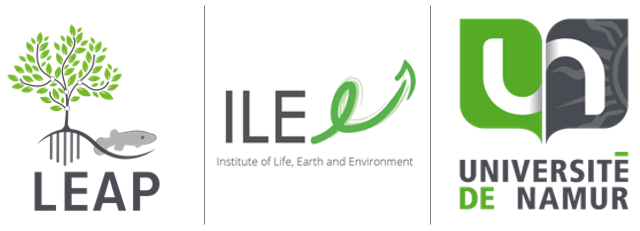LEAP has been ranked among the 6 best research projects funded by FNRS and FRQ for a scientific collaboration between Wallonia and Quebec involving a team of high quality scientists from both regions: Dr Alice Dennis – UNamur -, Dr Krishna Das – ULiège -, Dr Jonathan Verreault – Université du Québec à Montréal -, Dr. Stéphane Lair – Université de Montréal -, Dr. Magali Houde – Environnement et changement climatique Canada -, Dr. Véronique Lesage – Pêche et océans Canada – , and Dr. Robert Michaud – Groupe de recherche et d’enseignement sur les mammifères marins. The list of the 6 selected projects can be found here.
The project is entitled: “An Epigenetic Clock to Estimate the Age of St. Lawrence Belugas and Its Impact on Contaminant Accumulation, Stress, and Health in This Endangered Population“.
The St. Lawrence Estuary (SLE) beluga (Delphinapterus leucas) in Québec (Canada) inhabits a marine ecosystem heavily impacted by human activities and has shown no signs of recovery in recent decades. Exposure to contaminants is suspected to contribute to some increasing causes of mortality in recent years in this population—such as infectious diseases and postpartum mortality in females—but the exact causes remain unknown (e.g., stress, immunosuppression, endocrine disruption, poor condition, etc.). A major limitation in assessing the health of individuals in this population in relation to contaminant exposure is the lack of a method to determine the age of living SLE belugas.
The goal of this interdisciplinary project is to understand the impact of age on contaminant exposure, stress, and health status of SLE belugas using cutting-edge omics and epigenetic approaches. We will validate a novel method to determine age (epigenetic clock) in belugas and investigate the role of age in contaminant accumulation and transcriptomic markers of stress and health (immune and hormonal status, physical condition, presence of infectious diseases), by comparing the SLE population to a healthier population of Canadian Arctic belugas. This project will address fundamental research questions never before explored in belugas, ultimately informing improved conservation strategies to help this endangered population recover.
More specifically, LEAP will develop the epigenetic clock on this marine mammal population and will use it to compare the chronological age with the biological age of living individuals. A new PhD student will be hired for this purpose and will work in collaboration with our current teaching assistant Justine Bélik based on the EpiClock that Justine has developed on the mangrove rivulus. The call for the PhD position can be found here.
Together with our projects on the mangrove rivulus in Florida and Belize, and on the fish and invertebrate populations in Ecuadorian mountains, it is the third scientific project using our ecological epigenetic expertise in wild animals to help preserving biodiversity.

